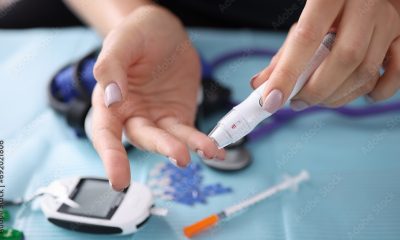Healthcare
Healthcare System for Diabetics in Spain
Spain offers comprehensive healthcare services for individuals with diabetes, including both Type 1 and Type 2 diabetes.
Here’s an overview of how the system works for diabetics in Spain, especially as a foreigner, and the availability of diabetic products.
Public Healthcare System
Primary Care:
Diabetic care usually begins at the primary care level with a general practitioner (GP) who can diagnose and manage diabetes.
The GP can refer patients to specialists such as endocrinologists for more advanced care.
Specialized Care:
Endocrinologists provide specialized care for diabetics, including advanced treatment plans, monitoring, and management of complications.
Public hospitals and clinics offer services such as blood sugar monitoring, HbA1c tests, retinal exams, and foot care.
Medication and Supplies:
Insulin and other diabetic medications are available through the public healthcare system, often at reduced costs or free of charge for those with a medical card (Tarjeta Sanitaria).
Blood glucose meters, test strips, and other diabetic supplies can also be obtained, though there may be some co-payments.
Education and Support:
Diabetes education programs are available to help patients manage their condition effectively.
Dietitians and nutritionists provide guidance on diet and lifestyle changes.
Private Healthcare System
Private healthcare in Spain offers more flexibility and shorter waiting times.
Private insurance can cover the cost of consultations with specialists, medications, and diabetic supplies.
Many private clinics have English-speaking staff, making it easier for foreigners.
Accessing Diabetic Care as a Foreigner
European Union Citizens:
EU citizens can use their European Health Insurance Card (EHIC) to access public healthcare services, including diabetic care, under the same conditions as Spanish citizens.
Non-EU Citizens:
Non-EU citizens typically need private health insurance to cover medical costs.
Some bilateral agreements may exist between Spain and certain countries, providing some level of healthcare access.
Buying Diabetic Products at Pharmacies
Without a Spanish Prescription:
Diabetic supplies such as blood glucose meters, test strips, and lancets can be purchased over-the-counter at pharmacies without a prescription.
Insulin and other prescription medications require a prescription, which generally needs to be from a Spanish doctor.
With a Foreign Prescription:
Some pharmacies might accept prescriptions from other countries, especially within the EU, but this is not guaranteed.
It’s advisable to have a Spanish prescription to ensure you can obtain the necessary medications without issues.
Practical Tips for Diabetics in Spain
Finding a Doctor:
Look for a GP or endocrinologist who speaks your language or has experience with expatriates.
Many private clinics in larger cities and tourist areas have multilingual staff.
Health Insurance:
Ensure you have adequate health insurance that covers chronic conditions like diabetes.
Check if your insurance plan covers diabetic medications and supplies.
Carrying Documentation:
Always carry important medical documentation, such as a letter from your doctor detailing your condition, current medications, and treatment plan.
This can be useful in emergencies or when visiting a new healthcare provider.
Regular Monitoring:
Keep up with regular monitoring of your blood sugar levels and other health indicators.
Schedule regular check-ups with your healthcare provider to manage your condition effectively.
Emergency Situations:
In case of a medical emergency, call 112, the emergency number in Spain.
Public hospitals provide emergency care, but for non-emergent issues, visiting a private clinic might be quicker.
Understanding these aspects will help you navigate diabetic care in Spain efficiently as a foreigner.
If you have any specific questions or need further assistance, feel free to ask!
